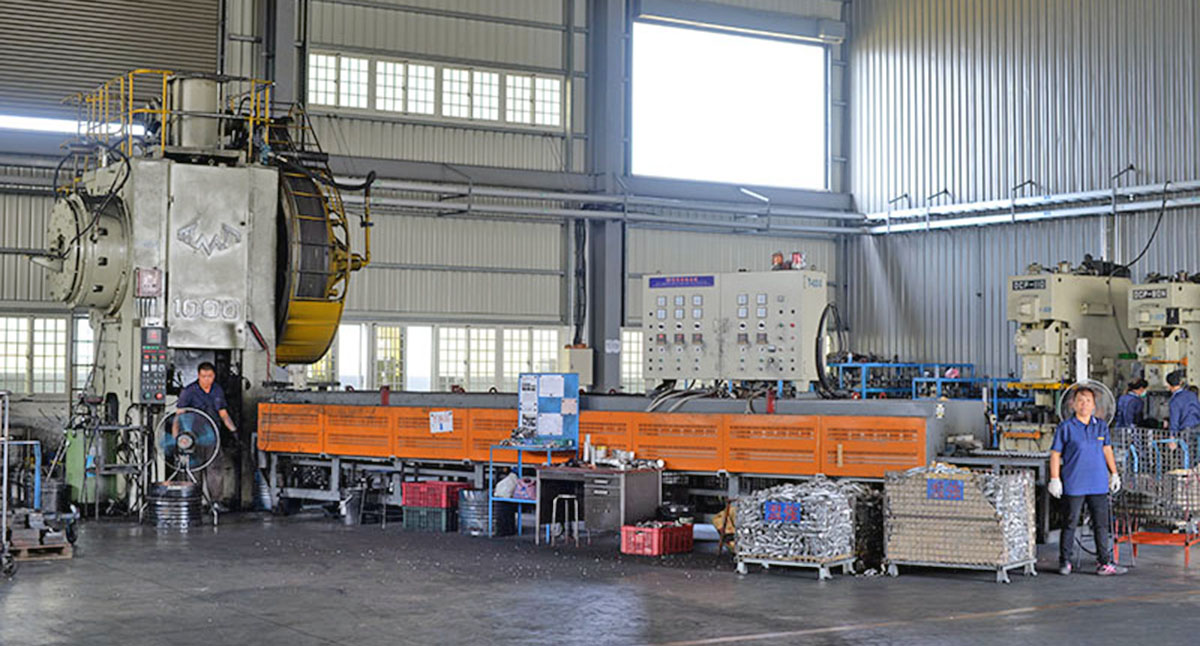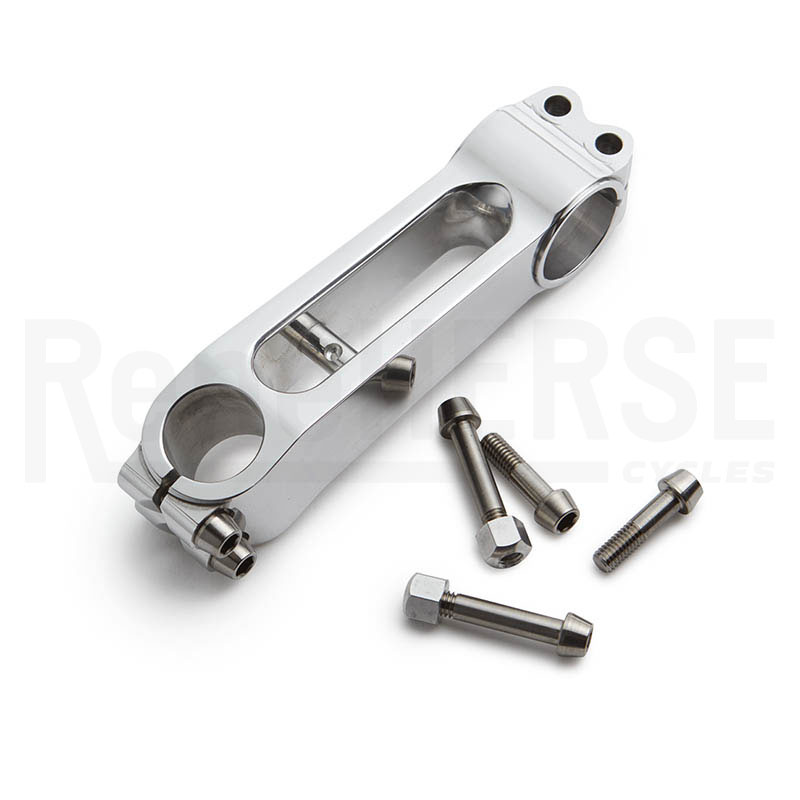Why it took so long to re-stock
Here at Rene Herse, we make components that offer alternatives to the big makers, with performance and durability that match the very best. Take our cranks, for example: Our customers want more chainrings choices, but they don’t want to give up shifting performance. And they don’t want to worry about their cranks breaking. So we forge our arms, and our chainrings have complex 3D tooth shapes and computer-optimized ramps. Our parts that meet the highest EN ‘Racing Bike’ standards. To achieve that, we work with the very best suppliers in the world.
This means that many components come from multiple sources—each the best in what they do. Take our cranks, for example: The arms are forged by one supplier (above), machined by a second one, and polished by a small independent shop. The chainrings are made by a fourth supplier, while our custom crank and chainring bolts come from a fifth factory. If you count the boxes and instructions, both made locally, you get seven different suppliers just for our cranks. And they are assembled right here in Seattle, so we can customize the chainring choices.
The upside of this way to make parts is quality and performance that you can only get when you work with the very best in every field. The down side is that we don’t always control the schedule of our production. We have to wait until our turn comes. And since we’re a small company, it’s not like we can ask for too many favors.
Sometimes we dream of making everything in-house. Then we could prioritize the parts we need, maybe slide in a small run of something that is more popular than expected and running out earlier than anticipated. But there’s always a quick reality check: No bike company except Shimano runs their own forge, because those hammers need to run around the clock to amortize their cost. Above you see Rene Herse cranks being forged. Not only is the forge huge, but it needs special foundations to withstand the forces of smashing aluminum into the shape of a crank. If we made our own cranks, they wouldn’t be forged. That means the grain wouldn’t be aligned, so we’d have to beef them up to compensate for the weaker material. They’d be heavier, bulkier, and still not as strong.
The same applies to the five-axis CNC machines that make our chainrings with their computer-optimized shifting ramps. And the screw making machines that turn out bolts with rolled threads. (Rolled threads are stronger and less likely to get stuck than cut threads that you make on a simple CNC lathe.) The best suppliers don’t just have these incredible machines, but also the expertise to get the very best out of them. They are experts in forging, experts in machining, experts in polishing, experts in making screws… and nobody can know it all. That’s the reason why big car makers like Porsche don’t cast their own engine blocks and don’t cut their own gears. Outside specialists are simply better at it.
Just like Porsche, we spec our components and then work with the best suppliers to make them. Managing all those projects is a tough job, and that’s why we have a full-time engineer in Taiwan. He helps design the parts with input from the manufacturing experts—figuring out how to make what we want to make is a big part of the job. He places the orders, discusses the specs, and supervises production. That way, quality control is done right at the factory, rather than a month later when the products arrive in our warehouse. That process is unique among small makers, but it’s key to the high performance and quality of our parts.
Why are so many of our parts made in Taiwan? Simply because that’s where bicycle part manufacturing is happening today, at least at the high end. It’s not like any forge can make bicycle cranks—you need experience with bicycle cranks. You need special tools for the square tapers. And you need a willingness to work with a small maker of bicycle components. When we asked some local suppliers of aerospace parts—Boeing is right here in Seattle—they just laughed: “Not our thing! You need to find somebody who knows bicycles!”
Our parts are difficult to make. That’s why we work only with the best suppliers. During a recent visit at the forge, I saw suspension components for high-end Italian motorbikes being made. There are less expensive suppliers, but I doubt they’d be able to make Rene Herse components to the quality standards we insist on.
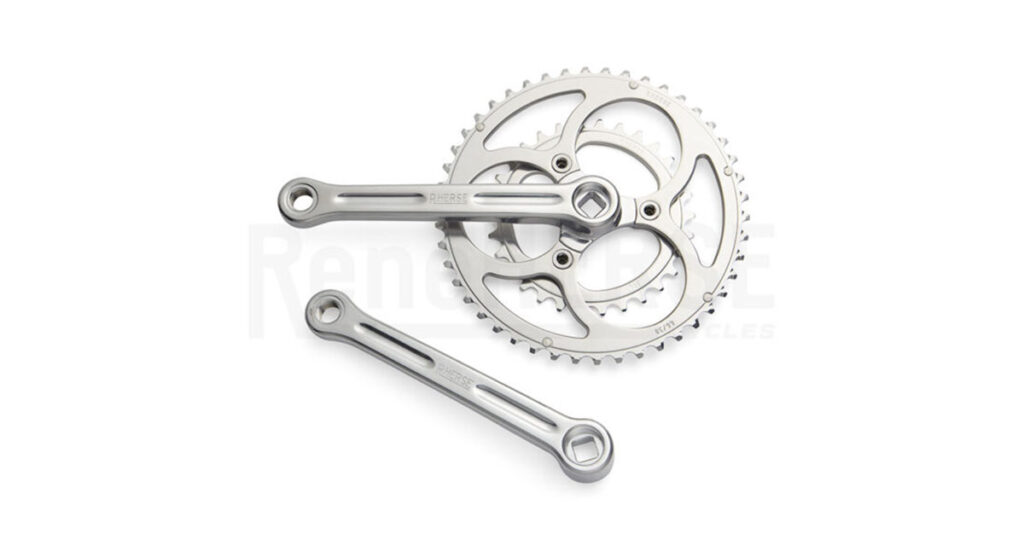
Take our cranks, for example: Using just three arms to attach the chainrings makes sense. You don’t need more, and it saves significant weight. But it means that the arms need to be machined with extreme precision, so the chainrings don’t wobble. The same applies to the small bolt circle diameter. It allows a free choice of chainrings all the way down to 24 teeth. But it means our chainrings need to run extremely straight, as any wobble increases the further away from the attachments you get. (That’s why our rings are made from special high-quality aluminum that’s rolled without stresses.)
We ordered crankarms more than 2 years ago. We prioritized the 171 mm arms, and they’ve been in stock for a while. Now the 165 and 177 mm arms are finally ready. We just got a small batch, and more will come soon. (They are polished in small batches.) The special aluminum for our chainrings is finally available again after shortages during Covid, so the ring are also coming off the line. Most sizes are in stock already; the few remaining ones should be here in a month or two.
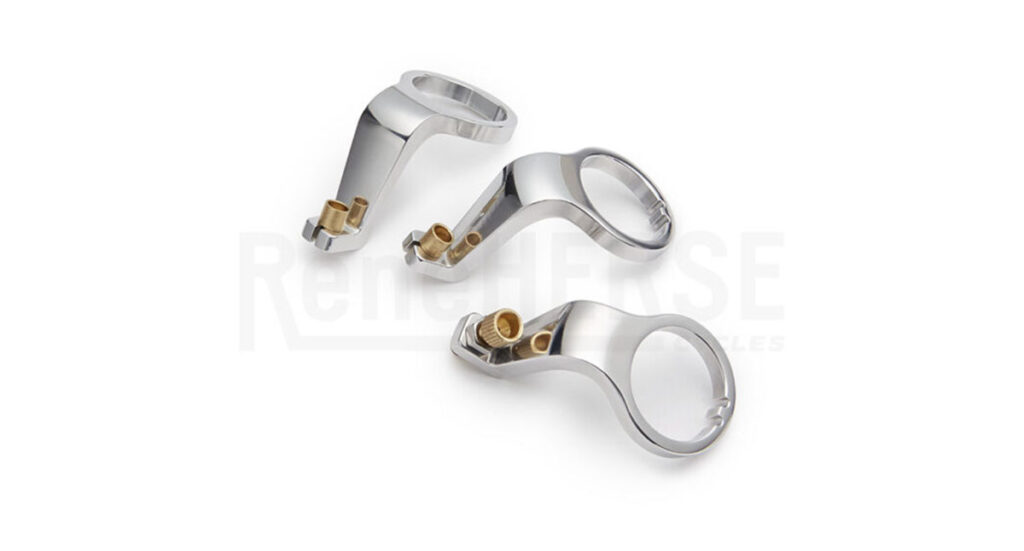
We also just received our popular cable hangers. Actually, the hangers themselves have been ready for a while, but we were waiting for the ferrules—which come from a different supplier. (That’s why a few cable hangers went back in stock a while ago, as we had a few ferrules left over to assemble a small batch.)
Here are some ETAs for other parts that have been out of stock:
Rene Herse stems for decaleurs: Stem bodies are machined. The insides of the slots are now in the process of polishing. Then we’ll rivet in the cable hangers on a special press. (Some things are so specialized that they’re best done in-house.) Then the outside surfaces of the stems will be filed and polished, and the stems will be ready. Hopefully we’ll have them in late January.
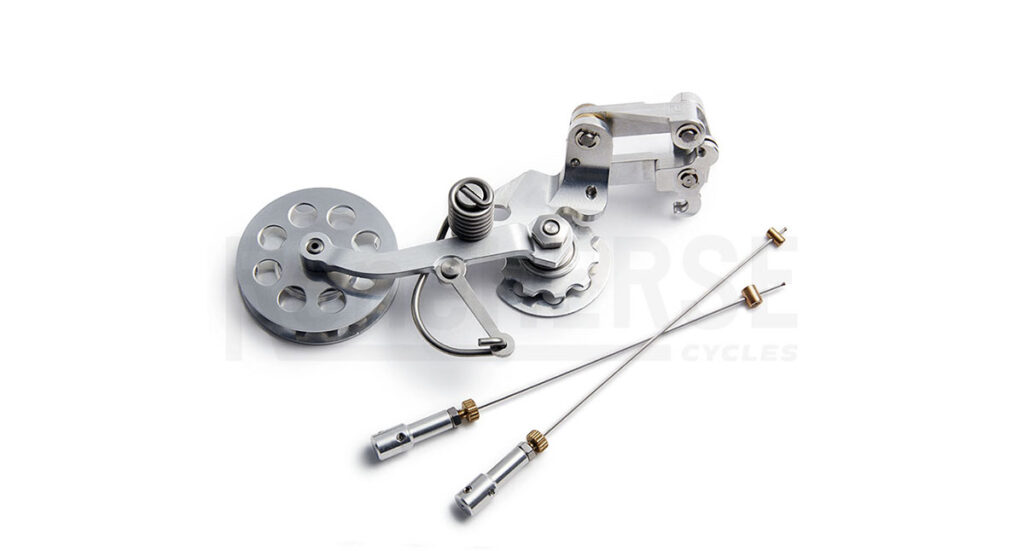
Nivex derailleurs and parts: We are assembling them by hand right now. Demand is still higher than the speed at which we can make them, so they tend to sell out quickly once we put them in stock. Sign up for re-stock notifications, so you’ll be among the first to find out when another batch is ready.
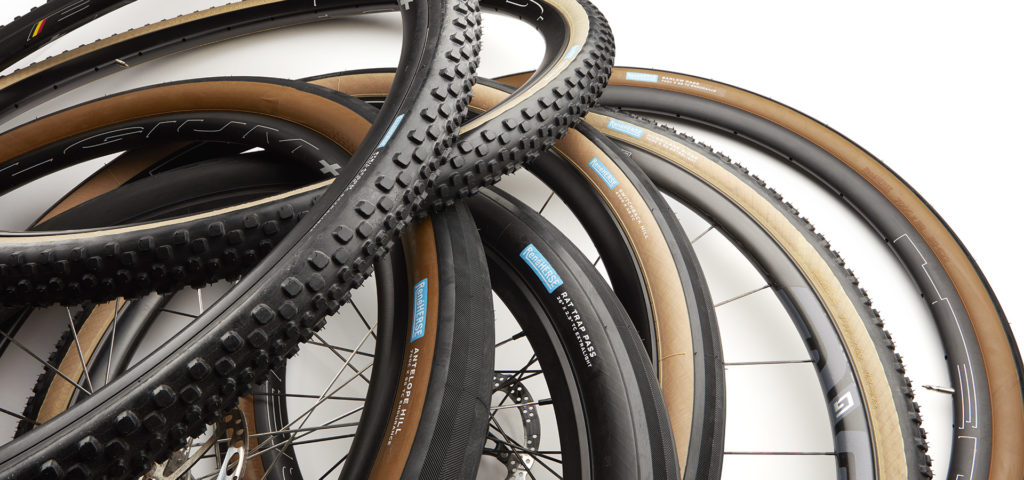
Fortunately, the most important parts of our bikes—tires—are made in a single factory, and they’ve been consistently in stock. Because we know you rely on Rene Herse tires to keep riding, and we take that responsibility seriously. We’re not going to leave you stranded!
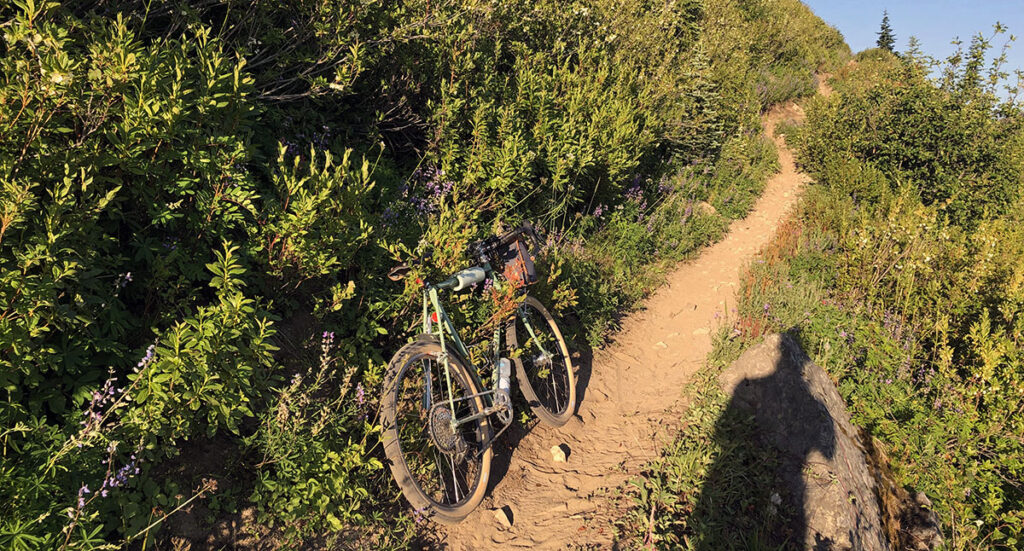
We make all our parts to the highest standards, because we use them ourselves. When we line up at the start of Unbound XL, Paris-Brest-Paris, Dark Divide 300 (above) or the Arkansas High Country Race, we need to be confident that we have the best bike for the job and our riding style. And when, a day or so later, we’re descending a rough mountain trail in the middle of the night, we need full confidence in our bikes. When the bike becomes one with our bodies, when we can focus completely on the ride, that’s when all this effort pays off.
We’re excited to share that feeling with our customers. Whether you choose Rene Herse tires for your carbon bike, put Rene Herse cranks on your bikepacking rig, or ride a custom rando bike with a full complement of Rene Herse parts, it’s good to know that no stone has been left unturned to make these parts the best they can be. Thank you to all of you who’ve been patiently waiting for production to catch up with demand.
Click on the images above to find out more about each product.


